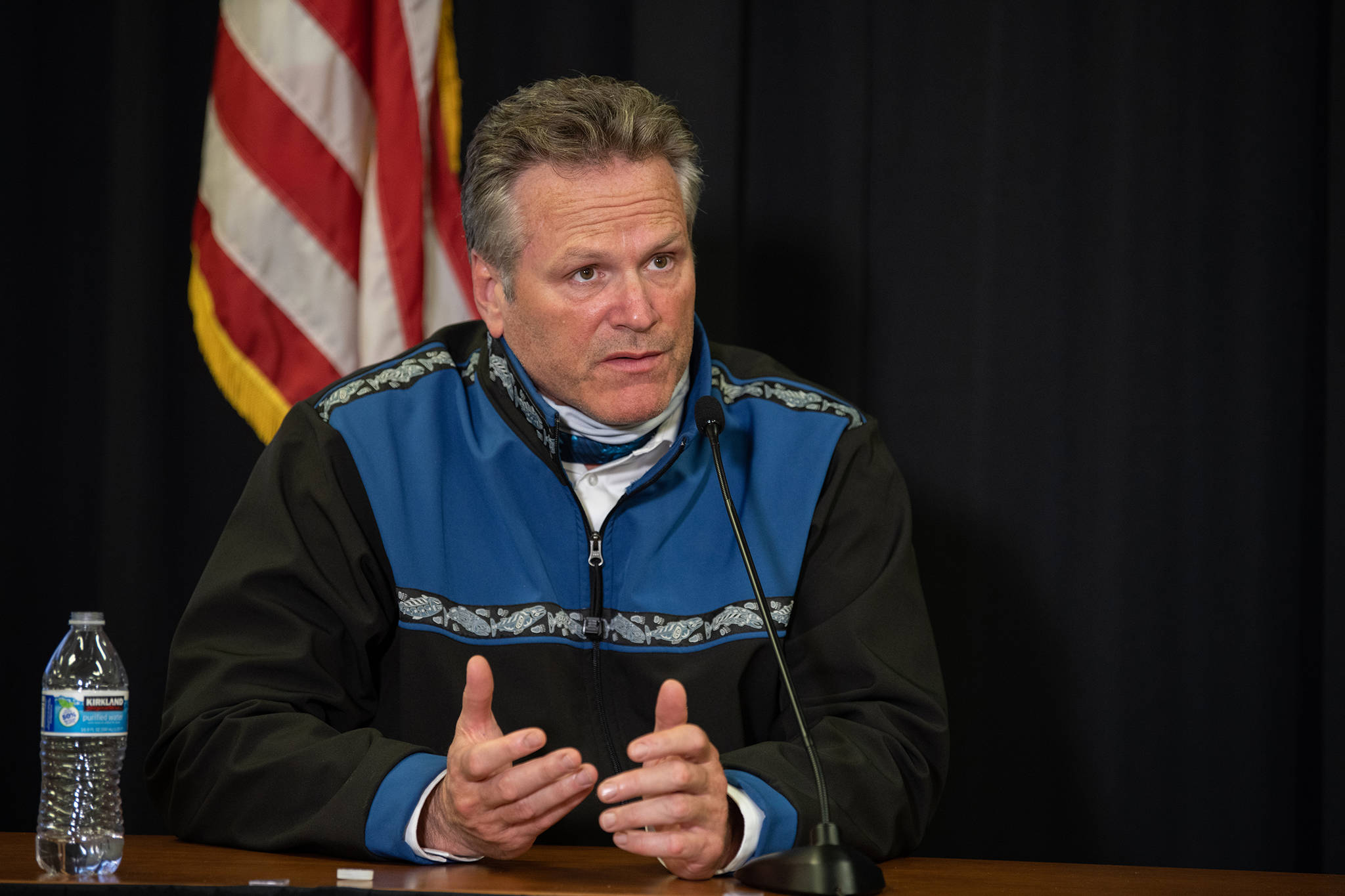Gov. Mike Dunleavy again urged Alaskans to change their behavior to limit the spread of COVID-19.
In a Friday evening news conference, Dunleavy cited the effects COVID-19 spread could have and is having on members of the military, health care professionals, law enforcement officers, firefighters among others as a reason people should be doing things like washing their hands regularly, maintaining 6 feet of space from one another, conducting business remotely when possible and wearing a mask when social distancing is difficult or inside a public space.
He said that in light of daily case counts that routinely rise above 300 and on Friday surpassed 500, the math does not work out in the state’s favor if nothing is changed, and that will mean greater case counts among emergency responders, health care workers and others.
[Governor urges Alaskans to wear masks]
“It’s going to start to infect our law enforcement in higher numbers,” Dunleavy said. It’s going to start to infect our firefighters in higher numbers, it’s going to start to infect our military in higher numbers. It’s going to start to infect more and more of us no matter what role we play, what job we have, where we’re at.”
That, he said, would strain the state’s health care system.
“We may end up soon with a situation where those people who are supposed to be caring for people in those hospital beds are actually in those hospital bed,” Dunleavy said. “I’m not saying this to worry people, I’m not saying this to scare people. It’s a bit of a problem that we can work on together.”
Dunleavy said he was not issuing a hunker-down order or mandates requiring masks or the eventual COVID-19 vaccine. Instead, he asked Alaskans to behave responsibly and compared the requested behavioral changes to driving carefully on a highway in the winter.
“It’s prudent to drive to conditions,” Dunleavy said. “It’s prudent to slow down a little bit.”
He said someone may be a young person and in good shape and thus less likely to become seriously ill or die due to COVID-19, but people who contract the contagious illness can infect others, and they may be more vulnerable.
“There’s other people on the road,” Dunleavy said.
He acknowledged that could be difficult amid the impending holiday season.
“The virus doesn’t care what month it is, what day it is, if there’s going to be a holiday,” Dunleavy said.
He said he wasn’t asking Alaskans to have “sad holidays” but different holidays “just for this year.”
“I’m asking it because we’ve got to slow this down,” Dunleavy said. “If we start to see 600 cases, 700 cases, 800 cases on a daily level, the mathematics is clearly going to demonstrate that we will overwhelm our hospital systems.”
• Contact Ben Hohenstatt at (907)308-4895 or bhohenstatt@juneauempire.com. Follow him on Twitter at @BenHohenstatt

